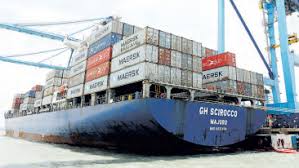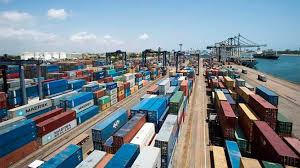Kenya Shippers Council Urges Government to Nullify Mandatory Certificate of Origin Rule

Agayo Ogambi, CEO of the Shippers Council of Eastern Africa. (Photo./ Courtesy)
By Mbungu Harrison
Email, thecoastnewspaper@gmail.com
The Shippers Council of Eastern Africa (SCEA) is urging the Kenyan government to urgently review a new regulation requiring all imported goods to be accompanied by a Certificate of Origin (CoO), warning that its implementation could have far-reaching consequences on trade, revenue, and the economy.
The requirement, set to take effect on October 1, 2025, was introduced through amendments to the Tax Procedures Act under the Finance Act, 2025. Initially slated for July 1, the Kenya Revenue Authority (KRA) extended the grace period to September 30, 2025, after which non-compliant shipments will face severe penalties, including seizure, fines, or denial of clearance.
However, the Shippers Council, though the shippers council of EAst Africa CEO Agayo Ogambi, has voiced strong opposition to the regulation, citing a lack of stakeholder engagement and public participation during its formulation. According to the Council, the sudden rollout violates Section 4 of the Fair Administrative Action Act, 2015, which requires meaningful consultation before such policy changes are made.
“The impressive Kshs. 879 billion in customs revenue collected last year is definitely at risk if the Finance Act provision on CoO is not rescinded immediately,” the Council stated.
The Council warns that enforcing the CoO requirement without due process will severely disrupt Kenya’s trade ecosystem. It could result in delayed cargo clearance, higher import costs, reduced efficiency at ports, and ultimately, undermine revenue performance.
In response, the Shippers Council is calling for a comprehensive policy review. It is urging the government and KRA to consider removing the CoO provision from the Finance Act, 2025, and to extend the grace period by at least one year. This, the Council argues, would allow for broader stakeholder engagement and give importers time to adapt to system changes.
It is also advocating for alternative administrative measures to enhance compliance, without introducing unnecessary trade barriers.

“Kenya must remain competitive and attractive for trade, and policies that create bottlenecks rather than solutions must be urgently revisited,” said Ogambi.
A major issue flagged by the Council is the absence of a formalized system between KRA and the various authorities mandated to issue Certificates of Origin. The lack of a standardized framework for verifying these certificates raises concerns about possible delays, confusion, and non-compliance.
The Council further questioned the logic of requiring CoOs for goods that do not benefit from preferential trade agreements. According to SCEA, this only adds an undue financial and logistical burden on importers, without delivering any clear benefits.
In today’s global supply chains, especially in regions such as Singapore and the UAE where goods are consolidated from multiple countries, tracing a single country of origin is highly complex. For many importers—particularly small and medium enterprises (SMEs)—complying with the CoO requirement will be next to impossible.
“This move will hurt SMEs, which are the engine of Kenya’s economy, employing millions of citizens,” said Agayo Ogambi, CEO of the Shippers Council of Eastern Africa.
Ogambi added that the regulation will also hinder operations for manufacturers, exporters dependent on imported raw materials, returning residents, relief agencies, and the growing e-commerce sector, all of whom rely on efficient, cost-effective import processes.
Beyond economic and logistical issues, the Council also highlighted legal inconsistencies between the new regulation and the East African Community Customs Management Act (EACCMA), 2004. Under Section 210 of EACCMA, a Certificate of Origin is only required when an importer is seeking preferential treatment. Moreover, the Act does not prescribe asset forfeiture for failure to present a CoO—unlike the penalties now proposed in the Finance Act.
If the intention behind the new rule is to curb misdeclaration, the Council argues that more targeted tools already exist. These include the Pre-Export Verification of Conformity (PVOC), Destination Inspection (DI), Import Declaration Forms (IDF), risk profiling, intelligence-based scrutiny, and the use of Harmonized System (HS) Codes for proper product classification.

“These mechanisms are already designed to detect and prevent misdeclarations, without imposing a blanket requirement that penalizes legitimate traders,” Ogambi said.
As the September deadline looms, businesses, importers, and trade stakeholders are closely monitoring developments, hoping the government will reconsider and adopt a more balanced approach—one that secures revenue while preserving Kenya’s role as a competitive hub for global trade.






